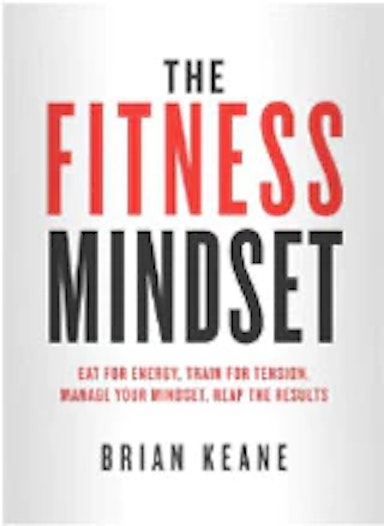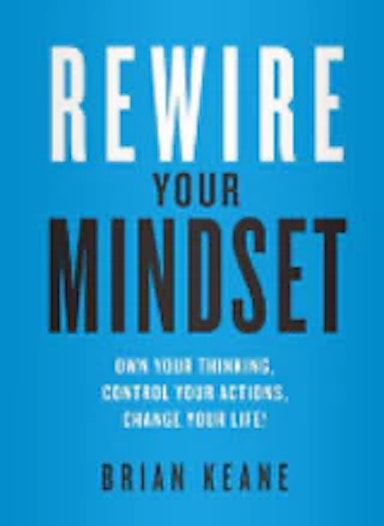Is stress giving you stubborn body fat?
- By Brian Keane
Have you cut all processed and fast food, train and eat relatively well and still can’t get rid of your stubborn body fat? There might be more to it than you think. This is something that has come up with three of my girls in my online program (this post applies to guys too, it’s just the girls are the ones who brought it up) about not being able to get their ‘stubborn areas’ to reduce. Everywhere is leaner, clothes fit better, people are commenting that they look great but they can’t seem to get thier belly fat or other stubborn areas to reduce. There is one common pattern that I noticed with my girls. They all have a form of pretty excessive stress in some aspect of their lives at the minute; one has had a fall out with one of her closest friends, another it’s getting emotional abused by a work college and another hates her job and the way she looks. All three girls are training incredibly hard and following their nutrition but can’t seem to get their stubborn areas to shift. This post is for them and anyone else who can’t figure out why your body isn’t using your stubborn fat for fuel.
Fat loss is a process that depends nearly exclusively on adrenal hormones. From reading Ori Hofmeklars ‘Minimum Fat, Maximum Muscle’, he discusses that the balance between beta and alpha receptors is what dictates whether fat tissue is responsive to fat burning with beta receptors being more reactive to adrenalines fat burning. What does this mean? Basically, it means if you hijack your beta receptors (cardio style used, certain supplements etc.), you can burn fat faster!
Most of the fat burning principles in this book are based on hijacking those receptors in a positive way so you look AND feel better without having to track every calorie or do two hour workout every day (which can actually have the opposite effect to what you are looking for).
There is however one thing that will massively slow down this process where no amount of cardio, meal timing or fat burner will work. Its like you are pushing from one direction and this is pulling from another. I’m talking about stress (or cortisol which is the stress releasing hormone).
GOOD STRESS AND BAD STRESS!
The beauty of stress (and cortisol) is that controlled physical stress such as working out is incredible for your body. When you workout, adrenal hormones (catecholamines) are released largely as a fight or flight response, and even though the effects of stress on fat burning are quite complex, I’ll attempt to break it down to give you an idea of what is happening every time you workout.
Stress causes a release of fatty acids and glucose from the liver and adipose tissue (fat stores). In skeletal muscle, stress relate adrenal stimulation causes the breakdown of glycogen (your stored carbohydrate) reserves to provide immediate fuel for you workout. A load of secondary processes then occur, your adrenal hormones accelerate heart rate to increase blood flow, enhance breathing and overall detoxification whilst relax other systems like your digestive and reproductive system (the evolutionary reason being if you were being chased by a tiger and had to stop to go to the bathroom or mate, you were the tigers dinner).
With this description, it sounds like stress is great for getting rid of body fat? And it is. Your body literally releases fatty acids and glucose (remember excess gets converted to fat) and gives you energy so how is this bad? In this circumstance, it isn’t; on the contrary, working out is probably the best physical stressor one can have as it’s a controlled stressor i.e. you go into stress for a short period of time and burn up the fatty acids and/or glucose that have been released to you. This short term stressor is crucial for health, wellbeing and body composition but what happens when this stress becomes chronic?
Your body cannot distinguish the difference between short term (good) stress like exercise and long term (bad) stress like stressing out about money, family or work. Stress is cumulative, it all adds up regardless of where it is coming from; so stressing about a fight with your partner, a work meeting in the afternoon or money problems at night all adds up and stresses the body in the same way.
The process above makes perfect sense in short term situation: you are going to train, you need energy, your body sees that is physically stressed and releases the appropriate fatty acids, glucose and hormones. But what happens when this becomes the default and you are stressed 4,5 or even 10 times during the day (some people wake up stressed and stay in that state until they go bed that night).
Being over stressed in any aspect of our life leads to what’s called ‘over –excitory impact’ – in simpler terms, you are overly excitable, anxious or on edge most of the time. This can happen in the short term if you drink way too much (we’ve all done it) but this exact same feeling is how long term stress affects your body. The only difference is you ‘get used to it’ –your body is incredibly adaptive and if every day you wake up tired, having no energy during the day and go to bed exhausted, you just get on with it and it becomes ‘normal’ to you.
On a side note, getting away from the frustration of eating well and training hard, yet still not losing body fat; from a health and life quality standpoint, this is no way to live! I get it better than anyone- during my first teaching job (which I hated), I suffered from chronic fatigue from being in a state of constant stress and it wasn’t until it was pointed out to me that I wasn’t as lean as normal (even though I was training more than ever) or that I seemed exhausted all the time that I released something else was the problem.
Chronic stress and can lead to chronic anxiety, adrenal exhaustion and over metabolic breakdown. Have you ever seen a person who is always on a diet but never seems to lose any weight? (over dieting causes chronic stress too) or the parent or business person who just can’t lose weight, tone up or build muscle because they are in a state of constant stress. It’s easy to find example and if you dig deep, I’m sure there was a time in your life when you were overly stressed and your body shape took a hit as a result.
THIS IS WHERE STUBBORN BODY FAT COMES FROM?
I’ve discussed in another blog post, (Eliminating the reasons for fat to exist) about how to get to your stubborn fat, you need to tap into your visceral and sub cutaneous fat stores but for some; it’s not as simple as that. Some people have good eating and training habits most of their lives (so it’s not a build of visceral fat) and still can’t lose that stubborn fat so what’s the problem? This is where stress comes in. If insufficient rest is combined with chronic stress, the result may be formation of tissues that resist adrenal stimulation (i.e. you can’t use stubborn fat for fuel).
HOW CAN I GET RID OF STUBBORN BODYFAT?
Firstly, assuming you don’t have years of build-up of visceral fat (from making poor dietary decisions, and that includes skipping breakfast or using traditional processed cereals in the morning as well as fast food and trans fats at weekends); if this is the case, as long as you are eating well, spacing your meals to keep blood sugar and hormones stable and following a good tension style program with high intensity cardio, you will reduce body fat over time; you just need to reduce your visceral fat (over the organs) first before you start to use sub cutaneous fat (under the skin, the fat you can see, grab and feel) as an energy source. Assuming this is not you, then reducing chronic stress is going to be crucial so here are my top tips for losing stubborn body fat by cutting back on stress.
- FIND THE CAUSE OF THE STRESS: This may sound so straight forward but too often if we really think about it, we can figure out the source of our stress. This can come from the work place (hating your job), your family (negative comments or influences) or your friends (same reasons) amongst a host of other physical (discussed below) and emotional stressors. I would advise that you become very self-aware for the next 7-10 days and keep note of when you are feeling your most stressed (that heart in mouth feeling or that sickly feeling you get in your stomach, that’s all stress which facilities cortisol release at inappropriate times) and cut that out of your life completely or at least massively reduce the exposure time to it. If it’s a particularly work colleague that makes you feel terrible about yourself, avoid them at meetings, break and lunch times; if you they come up for a chat, politely excuse yourself and walk away. Ask yourself, what’s more important, ‘what this person thinks of me’ or ‘how I’m feeling? If you feel stressed, you are going to feel and look worse. Every action has a opposite and equal reaction. Take the action of reducing your time with these type of people and the reaction will be a reduction in stress, feeling better about yourself and looking better as a result.
- NOTE WHAT FOODS ARE SENDING YOU INTO FIGHT OR FLIGHT: Some foods send our body into a fat or flight much worse than others. Highly processed foods (refined sugars etc.) are major triggers for nearly everyone as they’re not initially recognised by the body in the same way as ‘real food’. Your body has evolved to understand, break down and process ‘real food’ and until another million years passes that we are evolved to break down processed food, I would avoid them. – I understand some people are 80:20 or 90:10 and that’s fine, if that works for you, then great. I’m talking about it from a health and hormonal point of view. There is nothing wrong with having some processed food in moderation, (life is about balance and I’ll be the first one to take my daughter for ice cream once or twice a week but I personally don’t think factoring it in every day is going to support you (from a health and fat loss point of view) in the long run.
The added emulsifiers, sweeteners and preservatives can put your body into a massive fight or flight response. Have you ever felt anxious for no apparent reason? Have a look at the foods you ate that day (or the day before) and see if there is a pattern. I spoke in another chapter about how when I used to use gluten and dairy as my ‘cheat’ meal, I would feel edgy and weird the next day; then have brain fog two days later. I suggest becoming very self-aware on this for the next 7-10 days and cut those foods that elicit that response.
- CLEAR OUT YOUR ADRENALS: If you are over stressed, your adrenals are definitely over worked. Too much stimulants, too much stress (training short term or chronic long term) and insufficient rest can all tax your adrenals. Depending on how long they have been working at full capacity will determine how long it takes to repair them. If you have been chronically stressed for two years, they are not going to be fixed in two days or even two weeks. Try reducing your stimulant intake (I replace coffee with green tea so I still get a little bit of caffeine and don’t get withdrawals) and getting a good night’s sleep every night (for more tips on sleep, check out my blog at www.briankeanfitness.com/how-to-get-a-better-nights-sleep/).
There is a pretty obvious feedback loop with your adrenals and sleep. If your adrenals are over worked, you can’t sleep properly, meaning your ware tired the next day, which leads to reaching for more stimulants to ‘pick you up’, further taxing your adrenas and the cycle continues.
CONCLUSION:
Find the source, fix the problem. If you can find what people, foods and environment are eliciting a fight or flight response, minimise those stressors and your adrenals will start to regulate themselves again. If you can get your body back to ‘balance’ – you can now focus on dropping body fat, toning up, building muscle (or whatever your body composition goal is). Not only will you feel a thousand times better but sometimes losing body fat really is as simple as giving your body less reasons to hold the fat. I hope this helps and please comment below if you have any questions or if you found this helpful 😀


